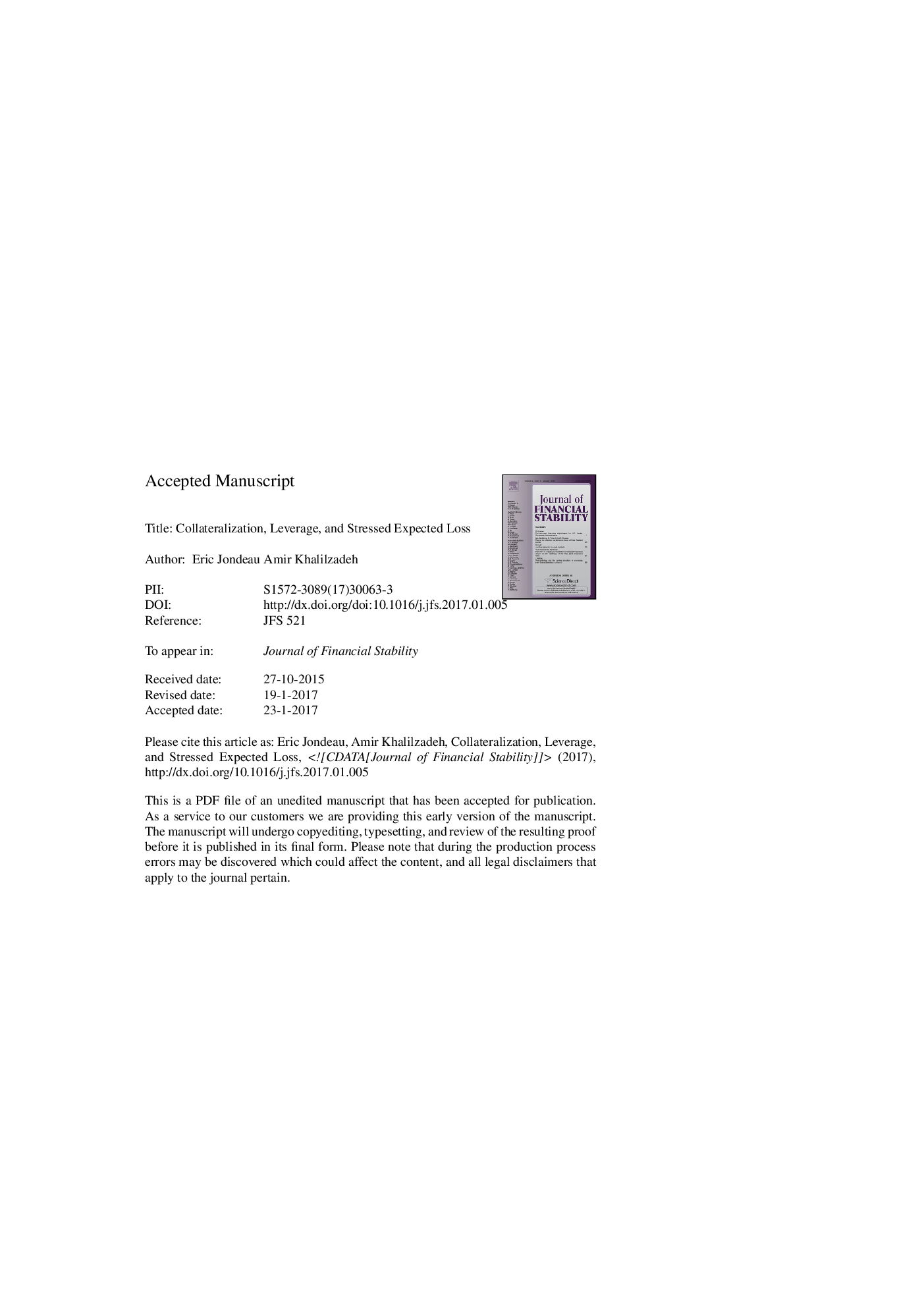| Article ID | Journal | Published Year | Pages | File Type |
|---|---|---|---|---|
| 7409301 | Journal of Financial Stability | 2017 | 46 Pages |
Abstract
We describe a general equilibrium model with a banking system in which the deposit bank collects deposits from households and the merchant bank provides funds to firms. The merchant bank borrows collateralized short-term funds from the deposit bank. In an economic downturn, as the value of collateral decreases, the merchant bank must sell assets on short notice, reinforcing the crisis, and defaults if its cash buffer is insufficient. The deposit bank suffers from losses because of the depreciated assets. If the value of the deposit bank's assets is insufficient to cover deposits, it also defaults. Deposits are insured by the government, with a premium paid by the deposit bank equal to its expected loss on the deposits. We define the bank's capital shortfall in the crisis as the expected loss on deposits under stress. We calibrate the model on the U.S. economy and show how this measure of stressed expected loss behaves for different calibrations of the model. A 40% decline of the securities market would induce a loss of 12.5% in the ex-ante value of deposits.
Related Topics
Social Sciences and Humanities
Economics, Econometrics and Finance
Economics, Econometrics and Finance (General)
Authors
Eric Jondeau, Amir Khalilzadeh,
